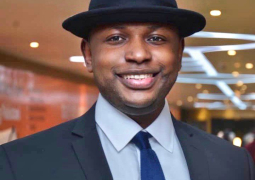Today’s Gambia is better than yesterday’s Gambia according to the new democratic hopefuls and those whose hands are greased in the power basin. However, considering the messages making the rounds on social media and what many people have been saying in recent months about the appalling state of affairs of the nation, it is time for one to reflect on the situation to raise the alarm where necessary, for rectification and reconstruction in national development.
- NAWEC
NAWEC has been one of the most resourced institutions in The Gambia. It is amazing that despite all the technical and financial inputs into this public enterprise, the water and electricity crisis seems to be going from bad to worse in recent months. There have not been any solutions to this problem. Frequent changes in the management of the institution, infightings, sabotage, stealing of fuel, illegal connections, etc. have become common features in the running of the institution. For how long can Gambians live with this situation? There can be no serious investments in a country where energy supplies are inadequate and unreliable. Perhaps, therefore, to ease the burden of NAWEC on Government, the situation should beprivatized. In this connection, the successful bidder will ensure its operational efficiency and effectiveness to realize returns on investment. In the absence of privatisation, Government should seek a new enactment by the National Assembly that will separate the institution into two entities, namely National Electrical Company, and National Water Company, each with its own board, management, and operations, with a Minister for Energy with oversight responsibility for OMVG projects to be appointed by the President from a list of experienced candidates with sound energy backgrounds.
- PUBLIC WORKS
In most parts of the country, particularly in the capital city and in the Kombos, there are serious structural deficiencies with the roads, including poor drainage systems. The commuters are really worried and the residents of the affected areas are crying over the poor state of affairs. This is an indictment on the moral conscience and professional competences of the roads authorities. One wonders what the authorities have been doing for the past four years. The publicity is not on URR roads and bridges because those were funded and implemented by the People’s Republic of China. The concern should have been the infrastructure situation of the rest of the country. The public works services in this makeshift companies and with weak State supervisory services will never be the solution to delivery of good roads and proper drainage systems in this country. Government must live up to its responsibility to give Gambians the tax payers’ dues and donor support given in providing standard infrastructure in terms of roads, bridges, drainage, sewage, road signs, etc. throughout the country. So far, the people are unhappy with the appalling state of affairs in public works. This sector needs to be revamped.
- PETROL STATIONS
In recent years, there has been a proliferation of petrol stations throughout the country as if the ALHAMDULLILA OIL WELLS have started flowing under the peoples beds. Most of these stations have been located in neighbourhoods where they pose real dangers to life and properties. It is unfortunate that the gas explosion on Jimpex Road did not serve as a reminder to the Government that is allowing the wrong and illegal positioning of petrol stations in residential and commercial places everywhere in the country. The Fire Service, Police, Works Ministry and others are seeing the threat posed by these petrol stations and no one is taking necessary steps to dismantle them and to relocate them to safer places in town. Why are the authorities ignoring this important national concern? The State will be held accountable in the event of any (God forbid) disaster. Government should look into this issue and find safer solutions. It is a threat to national security.
- PETROLEUM EXPLORATION
For several years, Government after Government have engaged oil companies in the hydrocarbon exploration in offshore oil fields in The Gambia. Companies such as Burried Hills, African Petroleum, FAR, and now BP among others have secured licenses to conduct oil explorations in our waters. In 2010, a Nigerian company called ORANTO OIL secured a license for oil blocks onshore. Do Gambians know what sorts of agreements have been concluded with these companies? It is important for the public to be informed about the state of affairs with each of the companies in a transparent and accountable manner. It is not expected for the companies concerned to inform Gambians about their activities in the country. It is hoped that the Government will not allow any company that found the oil to conduct drilling offshore and shipping to overseas markets. Gambians will vehemently oppose such moves. It has been widely advocated that the National Assembly should not approve dealswhich do not meet certain terms such the storage of barrels on land for Customs and Inspectors to do their work and for shares to be reasonably worked out between The Gambia and the oil company concerned. The country relies on the National Assembly to secure the national interest in the exploitation of the country’s oil reserves.
- DEMOCRATIC GOVERNANCE
The country, it must be stated, has seen a high degree of democratic governance over the past four years. The Gambia remains peaceful and secure. We have seen the people exercise their rights in many aspects of national life with minimum interference by the State. The rule of law has been adhered to in many instances in the courts, in the National Assembly and in the resolution of crisis situations. The Government has exercised tolerance and reconciliation on many national issues, some of which, in other countries, would have been subjected to state censorship. The fact that sixteen political parties have been allowed registration shows the democratisation of the political process in the country. Perhaps, therefore, Barrow is a democrat and his leadership is interested in the consolidation of our democratic gains as a New Gambia. The maintenance of democracy, peace and stability calls for coequal responsibility between the Government and the people. A good legacy for Barrow will be the strengthening of the democratic credentials of his Government all the way to the end of his term.
- ECONOMIC DEVELOPMENT
The worst enemies of a politician are bad decisions and the economy. Many Gambians are saying that the Government is failing in its promise for better standards of living and for the further development of the country. Some of the shortcomings of Government have been mentioned above. The much talked about misplaced priorities in the development agenda and the non-performance of many sectors of the economy is due to bad decisions and the misleading behaviour of the leadership. Many are saying that the Executive is not in tune with the realities on the ground. By the time he becomes fully aware, he would have been politically sacrificed. The problem as in the views of many Gambians is that public institutions are not being held accountable for non-performance. It has been said that whether or not sectors of the economy perform, and whether or not there is public outcry for malpractices or wrongdoings, the system of Government continues with less attention. It has also been observed that some Ministries are operating like their own Government within a Government. For almost four years, there has not been any major cabinet reshuffling in Government. The ability of the leadership to withstand system change remains highly questionable. Steering the ship of the State is more than just political patronage. Economic development is about resourcefulness, political authority is about decisiveness, Government is about making it happen. The transformation and reform agendas for The Gambia are primarily in the hands of the President. The right people with the right portfolios make a country flourish.
- THE THREAT OF COVID-19
The increasing number of COVID-19 cases in the country said to be 277 recorded as of the end of July is worrisome. Most Gambians at home are not taking this pandemic seriously. The public is constantly advised to take all precautionary measures to curtail the spread of COVID-19 while Government continues to monitor and assess the situation. However, many Gambians have been saying that this Government does not know which direction to take in the fight against COVID-19. We continue to be bombarded with ad hoc measures in the form of 7-day State of Emergency declarations. Meanwhile, markets and worship houses are all open, naming ceremonies, weddings, funerals, Sunday beach programs, crowded busses, taxi vans, etc. all continue as if there is no State of Emergency and that social distancing is not a protective measure against COVID-19.
The two questions before us are: Why has the Government response to the fight against COVID-19 been so slow and ineffective? Why is there little impact in curbing the spread of COVID-19 despite the huge funding from the National budget and international donor support? There seems to be something fundamentally wrong with the management of the National COVID-19 organization and the implementation of measures taken by Government to contain the pandemic. One wonders whether this is as usual due to lack of National capacity to handle the crisis or the indecisiveness of Government in taking stronger, consistent and proactive steps to contain the spread of the virus. It has been widely speculated that the Government is afraid of stiffer measures in fighting COVID-19, perhaps for political reasons.
It could be said that this is why nothing is coming out of the shortcomings and burning issues in many sectors of the economy and society. How long will Government continue to monitor the public outcry about system failures in many aspects of infrastructural and socioeconomic development?
Securing the nation’s health in the face of this pandemic is the primary responsibility of the Government of the day. After all, the country received so much donor support that its spread effects must be felt by Gambians in this health crisis situation. The general relaxation of COVID-19 guidelines, including the opening of the borders and the airport is a threat to national health security. As long as the country is witnessing more COVID-19 cases, our government should not shy away from taking responsibility over the welfare and wellbeing of Gambians. No outside influences should lead us to open our airspace and borders in the face of this pandemic which was brought on Africans.
With the funding, Government should have ensured that there is a first-class treatment centre for COVID-19. There should have been country-wide distribution of face masks at no cost to Gambians. There should have been enough drugs ordered for treatment of patients. There should have been call to duty of all medical and veterinary doctors retired and active to prepare a national response program for COVID-19 and to advise Government on its implementation. A curfew should have been imposed because of the carefree attitudes of the people. The fight against COVID-19 calls for coequal responsibility between the Government and the people.
By: D.M. Badjie
Political Scientist/Dev. Consultant
Read Other Articles In Opinion
The welfare of citizens
Sep 23, 2020, 11:46 AM



